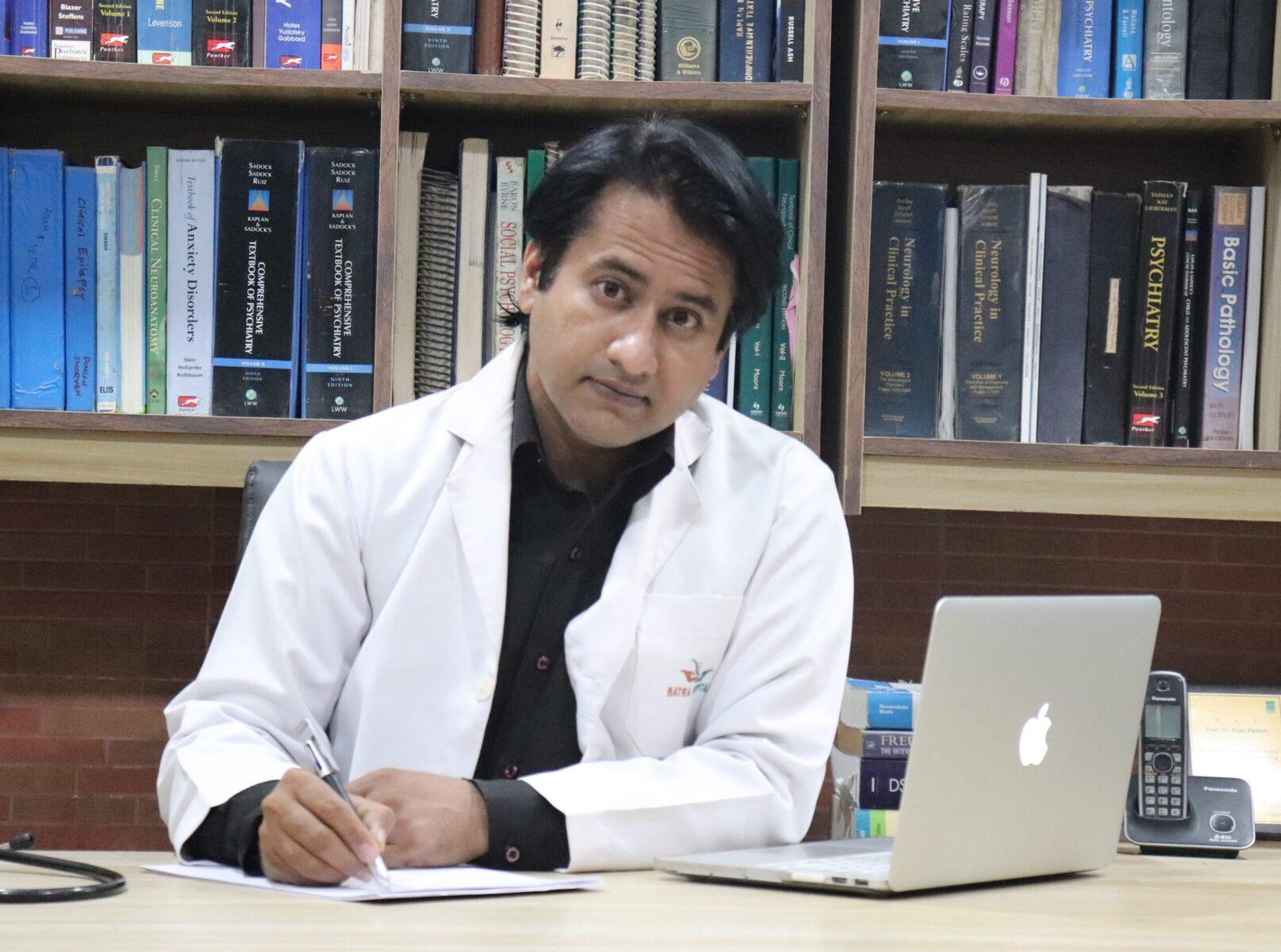Tourette Syndrome (TS)

Tourette Syndrome (TS) is a condition of the nervous system. TS causes people to have “tics”.
Tics are sudden twitches, movements, or sounds that people do repeatedly. People who have tics cannot stop their body from doing these things. For example, a person might keep blinking over and over again. Or, a person might make a grunting sound unwillingly.
Having tics is a little bit like having hiccups. Even though you might not want to hiccup, your body does it anyway. Sometimes people can stop themselves from doing a certain tic for awhile, but it’s hard. Eventually the person has to do the tic.
Types of Tics
There are two types of tics—motor and vocal:
Motor Tics
Motor tics are movements of the body. Examples of motor tics include blinking, shrugging the shoulders, or jerking an arm.
Vocal Tics
Vocal tics are sounds that a person makes with his or her voice. Examples of vocal tics include humming, clearing the throat, or yelling out a word or phrase.
Tics can be either simple or complex:
Simple Tics
Simple tics involve just a few parts of the body. Examples of simple tics include squinting the eyes or sniffing.
Complex Tics
Complex tics usually involve several different parts of the body and can have a pattern. An example of a complex tic is bobbing the head while jerking an arm, and then jumping up.
Symptoms
The main symptoms of TS are tics. Symptoms usually begin when a child is 5 to 10 years of age. The first symptoms often are motor tics that occur in the head and neck area. Tics usually are worse during times that are stressful or exciting. They tend to improve when a person is calm or focused on an activity.
The types of tics and how often a person has tics changes a lot over time. Even though the symptoms might appear, disappear, and reappear, these conditions are considered chronic.
In most cases, tics decrease during adolescence and early adulthood, and sometimes disappear entirely. However, many people with TS experience tics into adulthood and, in some cases, tics can become worse during adulthood.
Although the media often portray people with TS as involuntarily shouting out swear words (called coprolalia) or constantly repeating the words of other people (called echolalia), these symptoms are rare, and are not required for a diagnosis of TS.
Diagnosis
There is no single test, like a blood test, to diagnose TS. Health professionals look at the person’s symptoms to diagnose TS and other tic disorders. The tic disorders differ from each other in terms of the type of tic present (motor or vocal, or combination of the both), and how long the symptoms have lasted. TS can be diagnosed if a person has both motor and vocal tics, and has had tic symptoms for at least a year.
Treatments
Although there is no cure for TS, there are treatments available to help manage the tics. Many people with TS have tics that do not get in the way of their daily life and, therefore, do not need any treatment. However, medication and behavioral treatments are available if tics cause pain or injury; interfere with school, work, or social life; or cause stress.
Other Concerns and Conditions
TS often occurs with other conditions (called co-occurring conditions). Almost 9 out of 10 children diagnosed with TS, 86% also have been diagnosed with at least one additional mental, behavioral, or developmental condition. The two most common conditions are attention-deficit/hyperactivity disorder (ADHD) and obsessive-compulsive disorder (OCD). It is important to find out if a person with TS has any other conditions, and treat those conditions properly.
Risk Factors and Causes
Doctors and scientists do not know the exact cause of TS. Research suggests that it is an inherited genetic condition. That means it is passed on from parent to child through genes.
Who Is Affected?
Studies that included children with diagnosed and undiagnosed TS have estimated that 1 of every 162 children have TS. In the United States, 1 of every 360 children 6 through 17 years of age have been diagnosed with TS, based on parent report. This suggests that about half of children with TS are not diagnosed.
TS can affect people of all racial and ethnic groups. Boys are affected three to five times more often than girls.

I Can Help
Dr Vijay PathakMBBS MD Psychiatry (CIP RANCHI)Positive Psychology & Psychiatry Practitioner Since 2005Dr. Vijay Pathak is a well-known Consultant and practicing psychiatrist in delhi. After completion of MBBS from Sardar Patel Medical College, Bikaner (University of Rajasthan), he worked in different specialties as Neurology, Neurosurgery, Plastic Surgery, Urology as resident Doctor. The grossly unnoticed psychological trauma among patients tilted his interest in Mental Health and he obtained an MD in Psychiatry from the legendry Central Institute of Psychiatry ,Ranchi.. He then worked in the Department of Psychiatry of RML Hospital New Delhi as Senior Resident for three years and as Research Officer for a further one year. During this period he also gained experience in the Drug Dependence TreatmentHis areas of specialization include adult psychiatry (bipolar disorders, schizophrenia and anxiety disorders), child and adolescent psychiatry (especially ADHD), de-addiction (alcohol and substance abuse) and community psychiatry. One of the Top Psychiatrist in Delhi Dr. Pathak is known to be not only effective but also compassionate with his patients, as a result of which they trust him and connect well with him.Dr. Vijay Pathak, also termed as one of the Best Psychiatrist in Delhi by many of his patients in reviews , has extensive training and experience in his profession and is well-versed in the segments of psychopathology, psychopharmacology, neuroscience, clinical genetics, psychological therapies, research methodology, and statistics.
Dr Vijay Pathak Consultant Psychiatrist in Delhi can be found on google by following tags Psychiatrist In Delhi, Best Psychiatrist in delhi, Top Psychiatrist in Delhi, Delhi Psychiatrist, Psychiatrist in Rajouri Garden,Best Psychiatrist in Rajouri Garden, Psychiatrist in Hari Nagar, Psychiatrist in Tagore Garden, Psychiatrist in Raja Garden, Psychiatrist in Central Delhi, Psychiatrist in Ramesh Nagar, Psychiatrist in Moti Nagar, Psychiatrist in Shadipur, Psychiatrist Near Me, Psychiatrist in Karol Bag, Psychiatrist in Rajendra Nagar, Psychiatrist in Punjabi Bag, Psychiatrist in Paschim Vihar, Psychiatrist in Vikaspuri, Best Psychiatrist in uttam nagar, Best Psychiatrist in subhash nagar, Best Psychiatrist indwarka, Best Psychiatrist in nazafgarh, Best Psychiatrist in bali nagar, Best Psychiatrist in patel nagar, Best Psychiatrist in rani bagh, Best Psychiatrist in west delhi, Best Psychiatrist in tilak nagar, Best Psychiatrist innavada, Best Psychiatrist in delhi cantt, Best Psychiatrist in pitampura, Best Psychiatrist in rohini, Best Psychiatrist in ashok vihar